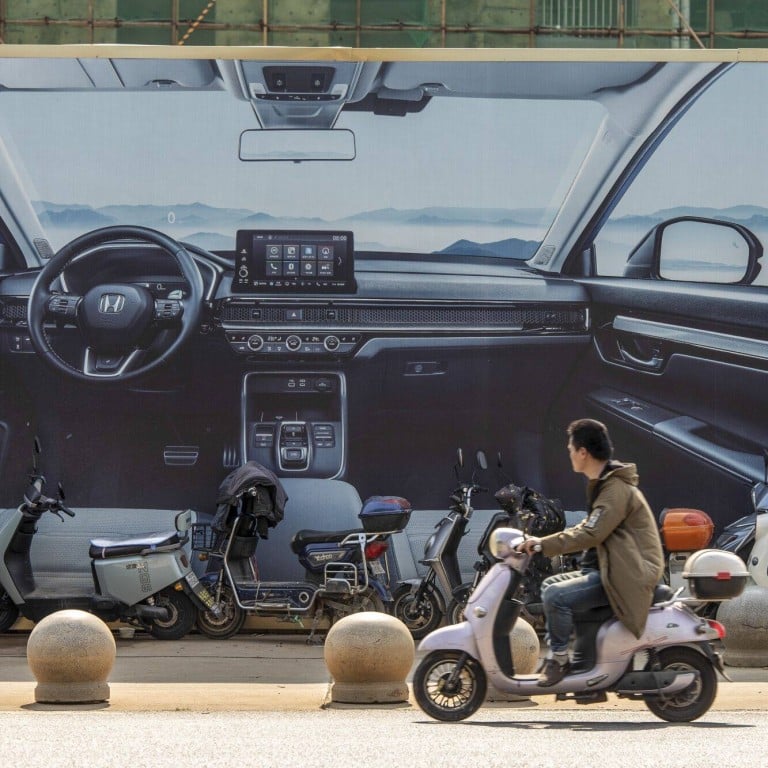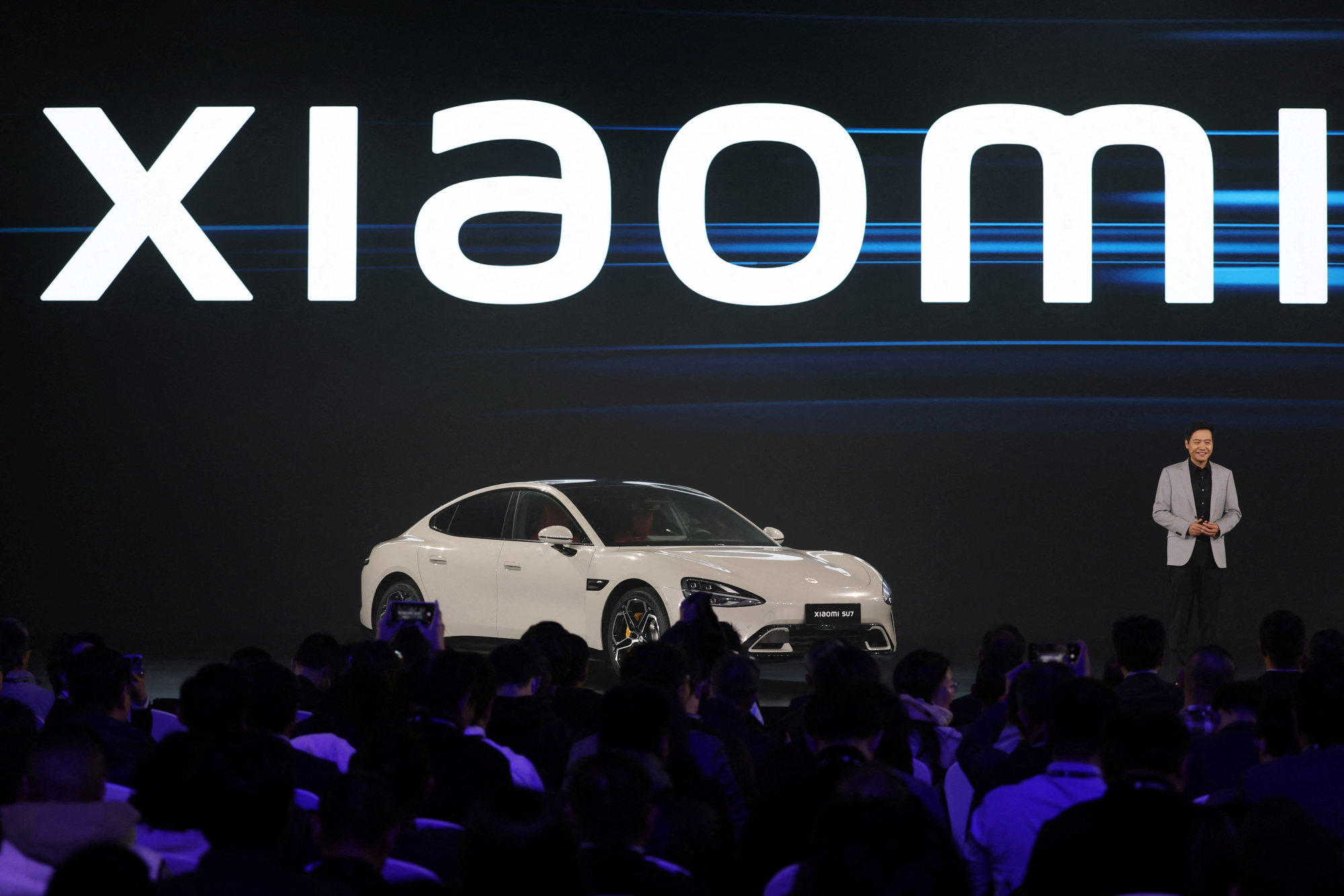
Chinese EV makers face day of reckoning in 2024 as competition and price war force out underperformers
- EV sales growth in China is likely to slow to 20 per cent this year, from the projected 30 per cent increase in 2023, according to a Fitch Ratings report
- At least 15 EV start-ups with a total annual production capacity of 10 million units have either collapsed or been driven to the verge of insolvency, a report says
Most of the companies will have to staunch losses to avert a potential capital crunch because of fundraising difficulties, according to analysts.
“Despite the fanfare surrounding China’s EV sector, investors are taking a cautious stance on each company’s business outlook since competition has escalated in the crowded market,” said Cao Hua, a partner at private-equity firm Unity Asset Management, which invests in car supply-chain businesses. “The year 2024 will be a watershed as some electric-car makers will be edged out due to poor performance.”
EV sales in mainland China are seen growing 20 per cent year on year in 2024, according to a Fitch Ratings’ report in November, slowing from the projected 30 per cent increase in 2023.

China is also the world’s largest automotive and EV market, with sales of battery-powered cars accounting for about 60 per cent of the global total. However, only a handful like BYD and Li Auto, a direct rival to Tesla in mainland China, are profitable.
New car launches by newcomers such as smartphone vendor Xiaomi and search-engine giant Baidu also pose a threat to existing players, as their intelligent vehicles divert the interest of young mainland motorists.
Chinese electric-car maker Nio gets US$2.2 billion boost from Abu Dhabi
The Shanghai-based carmaker cut 10 per cent of its workforce in November following a loss of 4.56 billion yuan for the quarter ending September, 24.8 per cent narrower than the 6.06 billion yuan loss in the previous quarter.
In April, Xpeng said it would fine-tune its designs and improve efficiency in 2024, and cut costs by 25 per cent to stay ahead of the competition.
The efficiency drive and cost-cutting programme would put Xpeng on the road to generating positive cash flow by 2025, according to president Brian Gu.
According to calculations by the China Business News in September, at least 15 promising EV start-ups with a combined annual production capacity of 10 million units have either collapsed or been driven to the verge of insolvency as bigger players took a lion’s share of the market.
Tesla aims to lure everyday buyers after a winning 2023 for EV sales
That exceeds the total EV sales projections on the mainland of 8.5 million units in 2023.
“Carmakers may still resort to price cuts to keep their bestselling models attractive to buyers,” said Phate Zhang, founder of Shanghai-based electric vehicle data provider CnEVPost. “For budget-conscious consumers, a 10 per cent discount, or 20,000 yuan to 30,000 yuan, translates to several months of savings, which can convince them to buy a particular model.”
During the previous price war between late October 2022 and May 2023, an anticipated sales boost did not happen as consumers waited on the sidelines for carmakers to further mark down prices.

